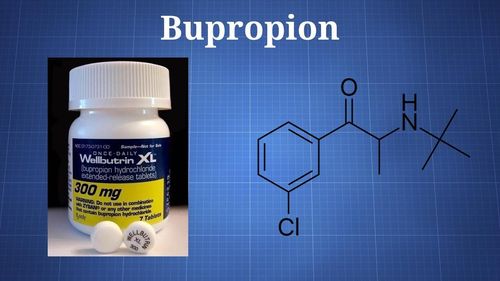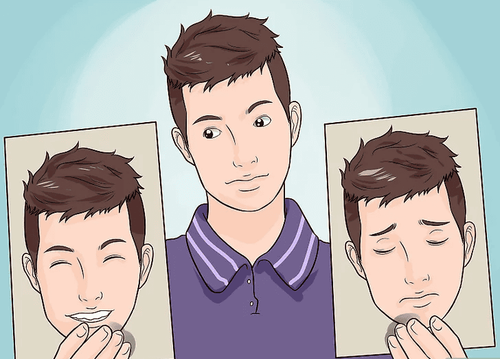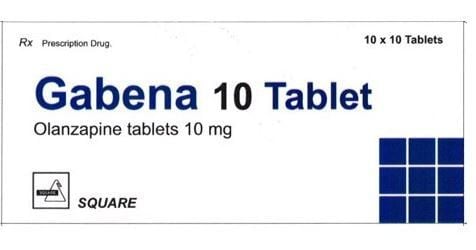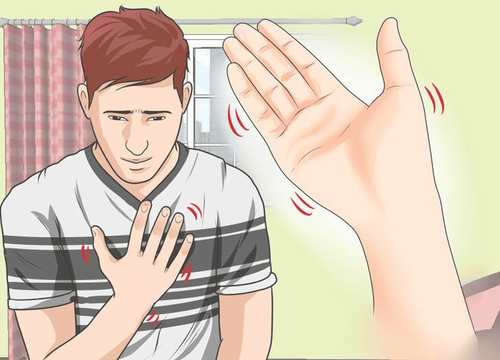This is an automatically translated article.
Bipolar disorder is a mental health condition that causes extreme mood swings including emotional highs (mania or hypomania) and depression. These mood changes can affect sleep, energy, activity, judgment, behavior, and the ability to think clearly.
1. Typical signs of bipolar disorder
Mood swings from bipolar disorder can happen once or more times a year. Although bipolar disorder is a condition you have to deal with for the rest of your life, you can manage your mood swings and other symptoms by following a treatment plan. Most cases of bipolar disorder are treated with medication and psychological counseling (psychotherapy).
There are several types of bipolar disorder, including mania, hypomania (manic episodes of mild intensity) and depression. Symptoms can cause unpredictable changes in mood and behavior, making life difficult and devastating.
Bipolar I disorder. You've had a manic episode, which can precede or precede depressive episodes. In some cases, mania can cause you to hallucinate. Bipolar II disorder. You have had periods of major depression and at least one hypomanic episode (euphoria), but you have not experienced a manic episode Cyclic disorder : You have had symptoms of hypomania and mild depression in adolescence or childhood for at least 1 or 2 years. Others: bipolar disorder and other related disorders caused by certain drugs, alcohol, or certain medical conditions, such as Cushing's disease, multiple sclerosis, or stroke.
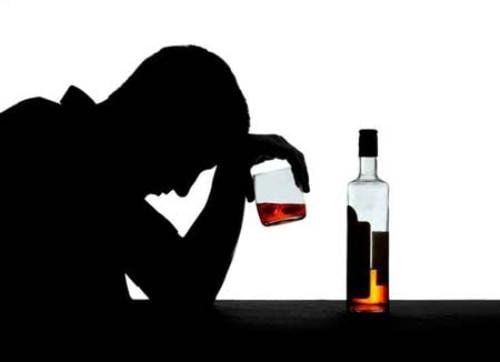
Rượu có liên quan đến một số loại rối loạn lưỡng cực khác
Bipolar II disorder is not a form of bipolar I disorder, but a separate diagnosis. While manic episodes of bipolar I disorder can be severe and dangerous, people with bipolar II disorder can experience depression for longer periods of time, causing significant distress.
Although bipolar disorder can occur at any age, the majority of cases are diagnosed in adolescence. Symptoms can vary from person to person and change over time.
Signs of mania include the following:
Unusual optimism Increased activity, energy or agitation Feelings of extreme happiness (euphoria) Less sleep Unusual talk Delusions, hallucinations Poor decision-making mind If you have bipolar disorder, you will experience a severe episode of depression, which makes it difficult to perform daily activities, such as work or social relationships. Symptoms of depression include:
Depressed mood, such as feeling sad, empty, hopeless (in children and adolescents, depressed mood can manifest through irritability) Loss interest or lack of pleasure in all activities Significant weight loss without dieting, weight gain, or decreased or increased appetite (in children, failure to gain weight as expected can be a sign signs of depression ) Insomnia or sleeping too much Restlessness Behavior becomes sluggish Fatigue or loss of energy Feelings of worthlessness or guilt excessive or inappropriate Decreased ability to think or concentrate, lack of assertiveness Thinking, planning, or attempting suicide Signs and symptoms of bipolar I and bipolar II disorder may include other features, such as anxiety, melancholy, confusion psychosis or others. In addition, symptoms of bipolar disorder can occur during pregnancy or change with the seasons.

Lo lắng lo lắng, u sầu là biểu hiện của rối loạn lưỡng cực I và lưỡng cực II
For children and adolescents, the symptoms of bipolar disorder can be difficult to identify. It can be difficult to diagnose if this is the result of stress, trauma, or a sign of another mental health problem or bipolar disorder.
Children and adolescents may have markedly depressive or manic episodes, which may differ from adults with bipolar disorder. And moods in children with bipolar disorder can change rapidly. Some children may have periods of no symptoms or signs at all.
The most prominent sign of bipolar disorder in children and adolescents is severe mood swings that are different from the usual mood swings in children.
2. Causes of Bipolar Disorder
The exact cause of bipolar disorder is still unknown, however there are several factors that can cause and trigger bipolar episodes such as:
Changes in biological processes in the body body. Patients with bipolar disorder often have physical changes in the brain. The magnitude of these changes is uncertain but may help pinpoint the exact cause of the disease. Genetics. Bipolar disorder is more common in people who have a close relative, such as a sibling or parent with the condition. Researchers are trying to find genes that may be involved in causing bipolar disorder. Psychotherapy plays an important role in the treatment of bipolar disorder. This method is almost always used in combination with other therapies including medication and the patient's lifestyle.
Psychotherapy is often used to improve the patient's understanding of their situation, thoughts, and behaviors, and their ability to maintain confidence and maintain relationships with others. with family and society.
Psychological Health Clinic - Vinmec Times City International General Hospital has the function of examining, consulting and outpatient treatment of psychological and mental health problems, including sleep disorders. With modern equipment, Vinmec Mental Health Clinic is currently cooperating with experienced professors and experts along with deploying psychological tests and intensive psychotherapy to serve the public. diagnosis and treatment, in order to bring the best treatment effect. Customers can go directly to Vinmec Times City to visit or contact hotline 0243 9743 556 for support.
Articles source: Mayoclinic.org
MORE:
Depression: Causes, symptoms, diagnosis and treatment Recognizing bipolar disorder Treating bipolar disorder




